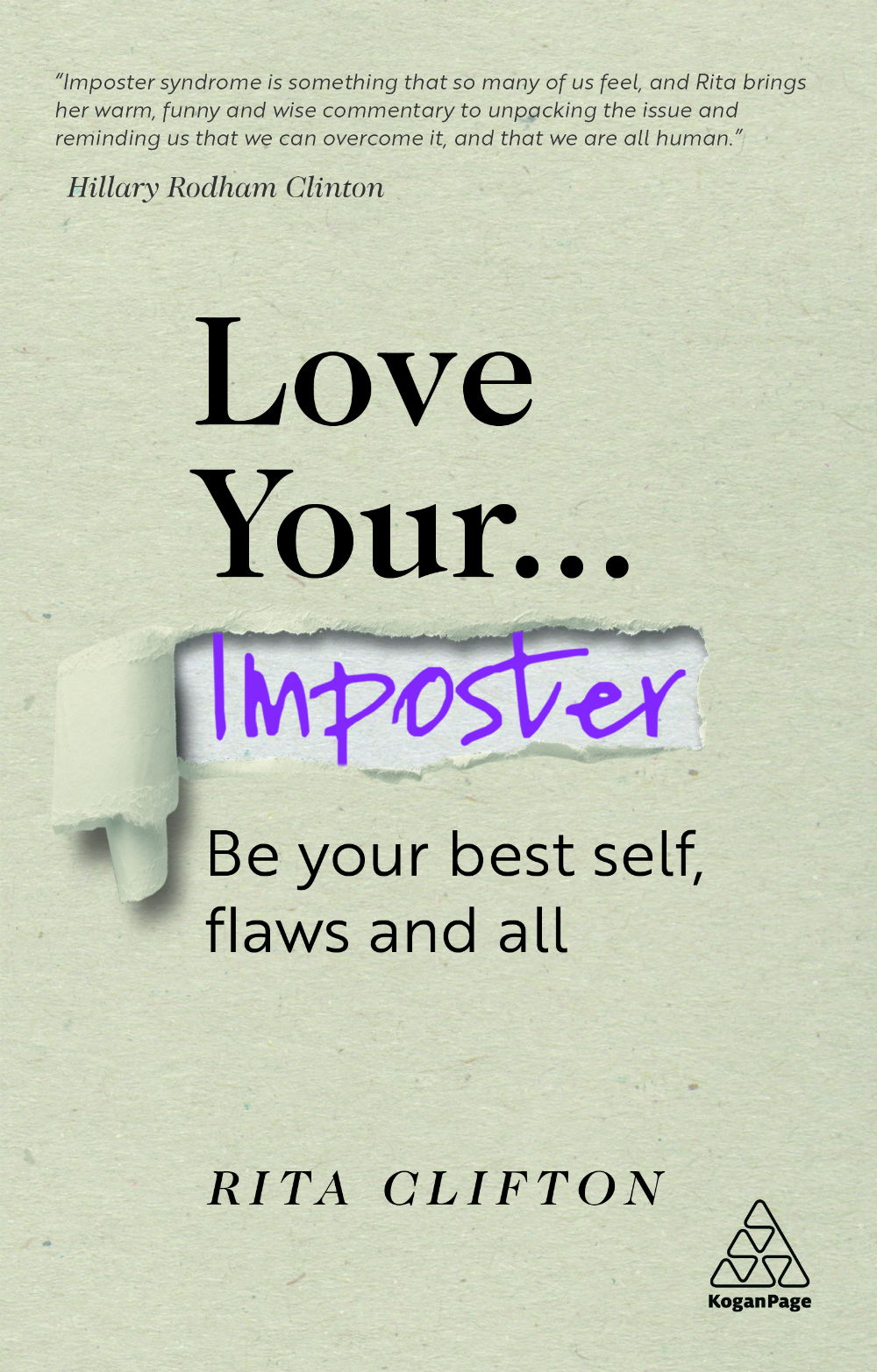How to be your best self by embracing your flaws
Rita Clifton is one of the most successful businesswomen of her generation (FYI Hillary Clinton loves her), and she's sharing her take on the 'faking it 'til you make it' myth with practical advice on dealing with imposter syndrome


Rita Clifton is one of the most successful businesswomen of her generation (FYI Hillary Clinton loves her), and she's sharing her take on the 'faking it 'til you make it' myth with practical advice on dealing with imposter syndrome
I don’t know about you, but I’m not sure how many more times I can take the word ‘unprecedented’ without either sticking my fingers in my ears and going ‘wawawa’, or just reaching for the delete button. But of course, almost everything we’re living through is indeed unprecedented. So, it's not unusual to have doubts about yourself and your abilities. Or worry about how to be your best self?
Well, that’s normal. Imposter feelings are experienced by more than 70% of people, women more than men. And I have experienced them throughout my career.
I started my first proper job in a recession. I've also had to make rounds of redundancies myself to make companies viable. Which is definitely one of the most upsetting aspects of running anything. I'm a mum with daughters who are trying to move forwards in their working lives at this most uncertain time.
Learn to love your imposter
These are scary times but, for lots of reasons, also a time when individuals can make a huge difference to the kind of future they’d like. Not just for themselves but for the world too. It's time to make the most of you, flaws and all. Let's ditch that artificial construct of 'fake it 'til you make it'.

I say all this because now more than ever the world - business and governments - need to be run in a much more human way if we’re going to solve social, economic and environmental problems. They need to run by people who actually look and feel as though they care about other human beings. Real people with friends, families, pets, pulses. Even a sense of humour.
I hope that means you. Because if you're feeling self-doubt or suffering from imposter syndrome about what you may be able to do, that’s a healthy thing. It makes you more human and empathetic.
You can learn to love your imposter, build your personal brand and save the world.
Do you want to stay in your current role and make a bigger difference? Or are you looking for a new role or desperate to go it alone with your own start-up? If you're nodding your head and saying yes, it's time to apply the tools and techniques practiced by some of the world’s most successful brands.
How to be your best self
One of the fallacies about branding is it's all about logos, packaging and who's spending the most on advertising. And even though these visible things can be useful, it has always been the substance that lies beneath that has made great brands work. Same goes for you and your personal brand. Here are a few things to think about.
1. Clarity
You need a good understanding about who you are. What you’re really good at and what sets you apart (in a good way). If you don’t know or are confused, there are lots of free personal development courses out there. Ask friends and colleagues what they think are your distinctive strengths.

2. Coherence
Having established what you’re really about and want to be, make sure everything you learn, do and communicate fits with that. For instance, it’s no use saying you want to run a company if you don’t know how money/finance works. Also, in almost any job where you want to have influence, you need to be a good communicator.
This doesn’t have to mean doing cabaret speeches. Just knowing a few techniques (like controlled breathing, using your eyes steadily, adapting the tone of your voice). Try video-ing yourself speaking as though in a meeting. You’ll notice lots of things you can improve.
And annoying though it might be, people are influenced by personal presentation; you wouldn't suggest to a client that they should put a great product in a shabby old box.
3. Leadership
Any organisation wanting to get ahead needs to keep on improving and innovating its offer. From a personal point of view, it’s really important to keep learning new skills, and keep everything about yourself up to date.
That may mean thinking laterally about how to use your skills in a different industry. Growth industries in the future are areas such as health and social care, logistics, IT services, software engineers and data analysts. If that's not quite your thing, it's worth remembering there are lots of different roles in these industries.
Your imposter self can be a strangely useful driver to help you achieve more. And it also shows you’re human. That’s exactly what the world needs right now.
* Rita Clifton CBE is a business leader and has been called ‘the doyenne of branding’ by the Financial Times. Her new book Love your Imposter: Be your best self, flaws and all (published by Kogan Page) and is on sale now
Celebrity news, beauty, fashion advice, and fascinating features, delivered straight to your inbox!
Maria Coole is a contributing editor on Marie Claire.
Hello Marie Claire readers – you have reached your daily destination. I really hope you’re enjoying our reads and I'm very interested to know what you shared, liked and didn’t like (gah, it happens) by emailing me at: maria.coole@freelance.ti-media.com
But if you fancy finding out who you’re venting to then let me tell you I’m the one on the team that remembers the Spice Girls the first time round. I confidently predicted they’d be a one-hit wonder in the pages of Bliss magazine where I was deputy editor through the second half of the 90s. Having soundly killed any career ambitions in music journalism I’ve managed to keep myself in glow-boosting moisturisers and theatre tickets with a centuries-spanning career in journalism.
Yes, predating t’internet, when 'I’ll fax you' was grunted down a phone with a cord attached to it; when Glastonbury was still accessible by casually going under or over a flimsy fence; when gatecrashing a Foo Fighters aftershow party was easy-peasy-lemon-squeezy and tapping Dave Grohl on the shoulder was... oh sorry I like to ramble.
Originally born and bred in that there Welsh seaside town kindly given a new lease of life by Gavin & Stacey, I started out as a junior writer for the Girl Guides and eventually earned enough Brownie points to move on and have a blast as deputy editor of Bliss, New Woman and editor of People newspaper magazine. I was on the launch team of Look in 2007 - where I stuck around as deputy editor and acting editor for almost ten years - shaping a magazine and website at the forefront of body positivity, mental wellbeing and empowering features. More recently, I’ve been Closer executive editor, assistant editor at the Financial Times’s How To Spend It (yes thanks, no probs with that life skill) and now I’m making my inner fangirl’s dream come true by working on this agenda-setting brand, the one that inspired me to become a journalist when Marie Claire launched back in 1988.
I’m a theatre addict, lover of Marvel franchises, most hard cheeses, all types of trees, half-price Itsu, cats, Dr Who, cherry tomatoes, Curly-Wurly, cats, blueberries, cats, boiled eggs, cats, maxi dresses, cats, Adidas shelltops, cats and their kittens. I’ve never knowingly operated any household white goods and once served Ripples as a main course. And finally, always remember what the late great Nora Ephron said, ‘Everything is copy.’
